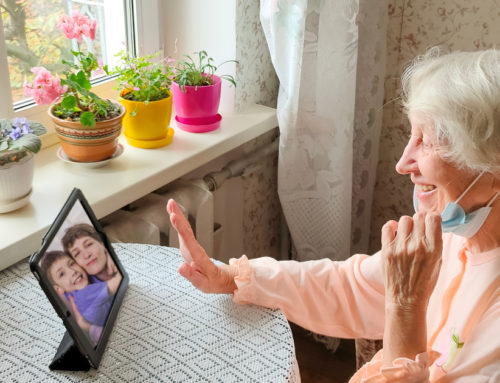Bearing the responsibility of caring for a loved one can be extremely stressful. Not only does meeting the daily needs of the one you’re caring for create stress, but having your own needs met can be very challenging and cause additional stress for you. This can result in physical and emotional trauma for you and potentially diminished care for the person you’re caring for.
Five Symptoms of Caregiver Stress
How can you know if you’ve reached the point where the stress of caregiving is negatively affecting you physically, mentally, and emotionally? These are symptoms that you are suffering from caregiver stress and might be approaching burnout.
Exhaustion
Waking up after a good night’s sleep and feeling as if you can’t get out of bed is an indicator of a physical or emotional problem and is very often stress-related. Being fatigued throughout the day can lead to diminished caregiving capability, which can, in turn, create additional stress for you.
Changes in Eating Habits
Caregiver stress can manifest itself in emotional overeating or appetite loss, resulting in unhealthy amounts of weight gain or weight loss. The resulting changes in diet and weight can then lead to heart disease, diabetes, and certain cancers.
Anger
As your stress level rises, feelings of anger can rise right along with it. Out of frustration, you may find yourself yelling at your loved one or find it more difficult for you to control your temper with them or other people. Anger with family members is also not uncommon if you feel they aren’t being helpful or supportive.
Anxiety
You may feel anxious about getting everything done, or because of feeling that you don’t have the time, money, or energy to do all the things you need and want to. This leads to more anxiety and apprehension about the future.
Depression
Thinking about the future and not seeing any relief in sight can lead to depression. Symptoms of depression include feelings of hopelessness, constant sadness and crying, feelings of guilt, and loss of interest in people and events.
You’re not alone if you are experiencing some of these symptoms of caregiver stress. If you are, there are strategies you can deploy to help you get through your day more effectively and with a general sense of physical, emotional, and mental well-being.
Five Strategies for Coping With Caregiver Stress
The following are some strategies that will help you effectively deal with the stress that comes with the responsibility of being a caregiver and will help you maintain the level of care you desire for your loved one.
Get Respite
Planning for regular respite should be part of your caregiver’s plan. It allows you to step away and have time for yourself while ensuring that your loved one’s needs are fully met. This will help you reduce your stress level and relax, allowing time for self-care and revitalization.
Set Boundaries
Though it can be difficult, saying “no” to requests that are stressful and draining, it is sometimes the best thing you can do for yourself. Putting yourself first and not taking on unnecessary and unrealistic demands will reduce your stress level and keep it at manageable levels.
Stay Organized
Establishing a daily routine is beneficial for both you and your loved one. Staying organized helps with making day-to-day responsibilities go smoother and seem less overwhelming.
Communicate Regularly
Staying in touch with friends and family can do wonders for your stress level. Sharing with someone your joys and frustrations provides great relief and can lead to you receiving some sage advice as well.
Remain Active
It’s important that you make time to be physically active, even if it’s just a short walk. Being active helps with alertness and is a great sleep aid, which can improve mood, overall well-being, and immune function.
We Love Helping Seniors to Continue Aging in Place
The stress of being a caregiver can be overwhelming. Help at Home can give you the support you and your loved one need. Our team of compassionate caregivers can assist with meeting daily needs such as personal care, picking up medication, laundry, grocery shopping, and other errands that will lighten the load for you.
To learn more, contact us today to schedule a FREE in-home consultation for a senior in the Maryland, Virginia, and Washington, DC area. We’ll help your loved one age comfortably in place.





